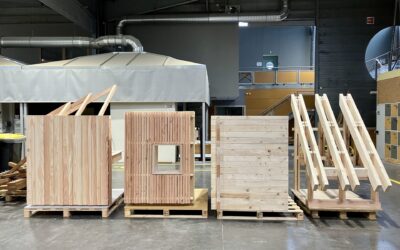Wood architecture and construction are incredibly diverse and rich, throughout the world and across the ages. At ENSTIB, we train engineering and architecture students each year through the Architecture Wood Construction (ABC) Master’s programme and specialisation engineers capable of designing and sizing large structures. Through this list of the 10 most iconic wooden buildings globally, we want to show that wood has always played a crucial role in construction, both in the past and present. A durable, aesthetic, resilient, flexible, and warm material, wood has been used to build homes since prehistoric times and is increasingly prominent in contemporary construction. Wooden construction has evolved over millennia, from simple shelters to more complex architectural structures, making wood a constant and evolving element in the history of human construction. This is evidenced by its use in the construction for the Paris 2024 Olympics. Indeed, several Olympic and Paralympic structures will feature timber construction solutions and fittings.
Our list of wooden buildings is not exhaustive and is the result of an arbitrary choice. We were inspired by the extraordinary research work of Jean-Claude Bignon, emeritus professor at ENSA Nancy and teacher at ENSTIB, within the ABC Master’s programme, as well as the favourites of our curious and traveling students, and some passionate teachers…
1. HORYU-JI TEMPLE, JAPAN

This temple, one of the oldest wooden temples in the world, is a masterpiece of Japanese wooden architecture and a UNESCO World Heritage Site. As Jean-Claude Bignon describes, “The buildings were constructed using the Chinese ‘bay’ system, a post-and-beam construction with complex joinery consoles, dougong, allowing the weight of the heavy tiled roofs to be transferred onto massive wooden columns” . The oldest buildings date back to the Asuka period and are considered the oldest wooden structures in the world (600 years AD).
2. HEDDAL STAVE CHURCH, NORWAY
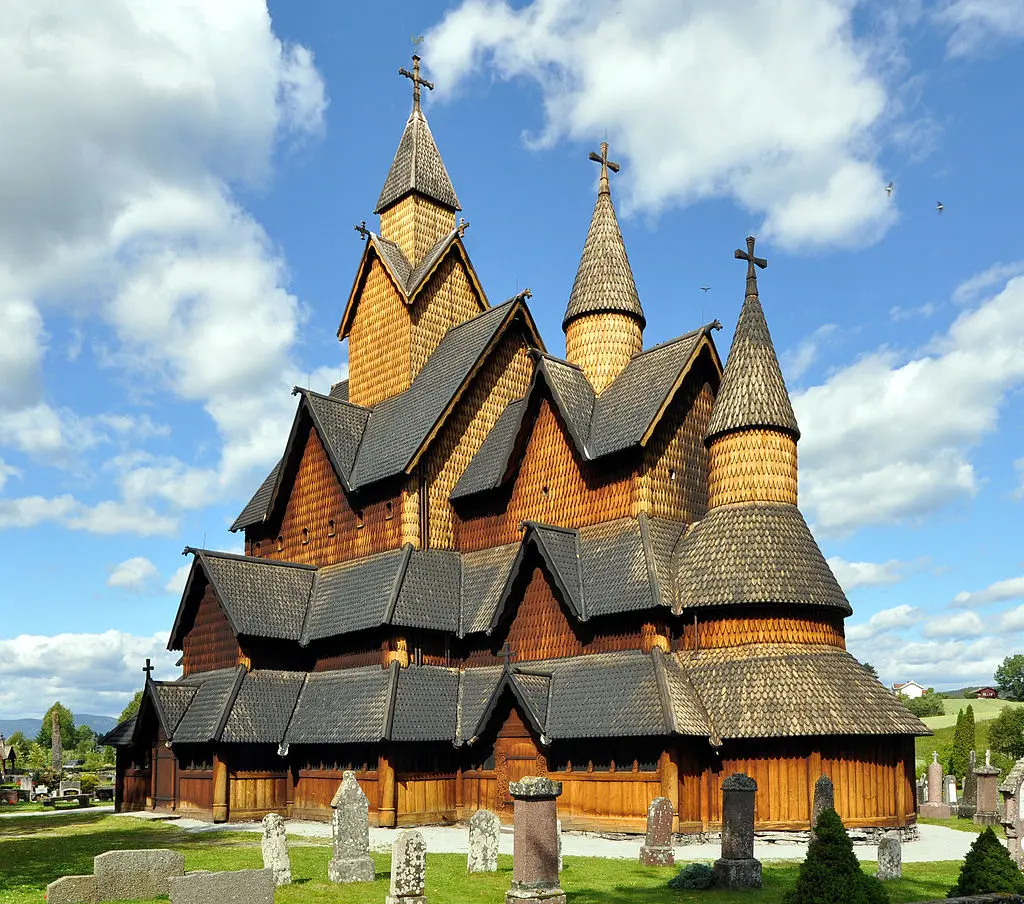
The standing timber church of Heddal is located near Notodden, in Telemark. It is the largest stave church in Norway, measuring 25 meters long and 17 meters wide. With three turrets and a height of 29 meters, it has the impressive appearance of a wooden cathedral. The building is constructed from pine wood, some of which dates back to around the year 1000, though the church itself was erected in the 13th century.
3. THE PEOPLE'S THEATER, FRANCE
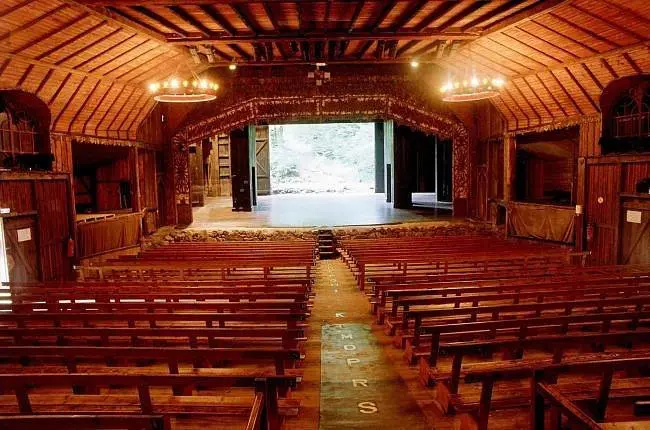
In Bussang, a small village in the Vosges mountains, the Théâtre du Peuple has been welcoming spectators since 1896, thanks to Maurice Pottecher, a theatre enthusiast who wanted to make this art form accessible to all. The building, made entirely of wood, has a stage open to the forest. Destroyed during the First World War, it was rebuilt identically in 1922, with a wooden framework and finally a fully panelled roof and ceiling shaped like a boat hull. In 2021, students of the ABC Master’s programme at ENSTIB worked on a new facility: a theatre studio for the People’s Theatre association on the “Popote” site.
4. KIZHI POGOST HERMITAGE, RUSSIA

Situated on an island in Lake Onega, this hermitage, a UNESCO World Heritage Site, is famous for its 18th-century Orthodox wooden churches and bell tower, built entirely without nails. These buildings are emblematic of the richness of Russian stacked timber architecture. The site underwent a major renovation programme in 2010 and again in 2016.
5. GAMMELSTAD CHURCH TOWN, SWEDEN
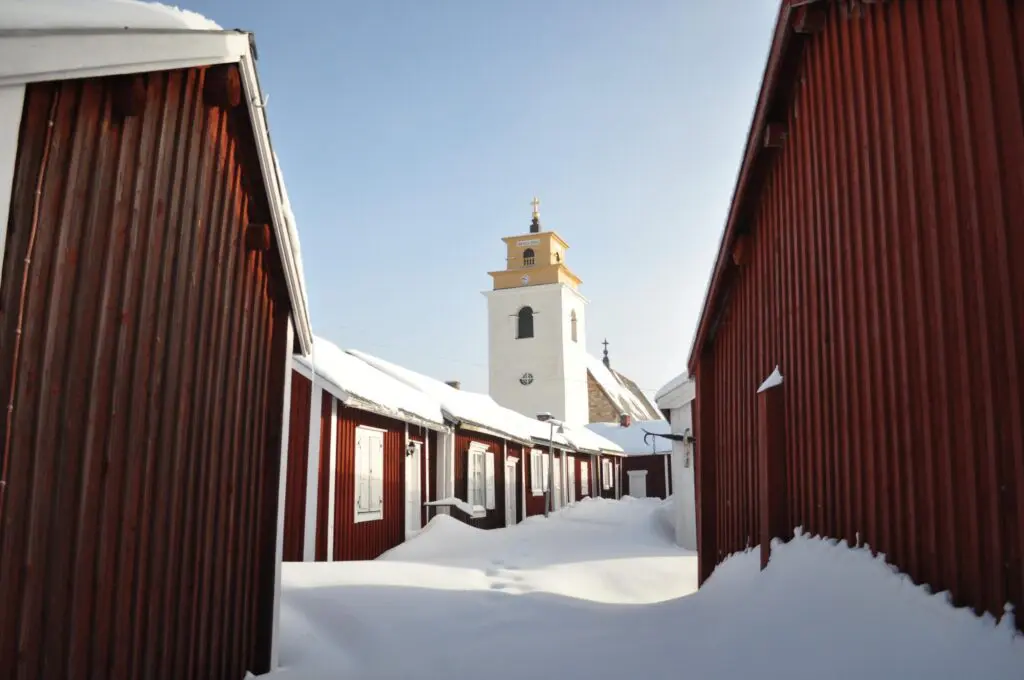
Gammelstad, at the head of the Gulf of Bothnia, is the best-preserved example of a unique type of town in northern Scandinavia, the church town. Its 404 wooden houses clustered around the early 15th-century stone church were used only on worship days and religious festivals by parishioners from the surrounding countryside, who were prevented by distance and harsh natural conditions from returning home.
6. KAMMERZELL HOUSE, FRANCE
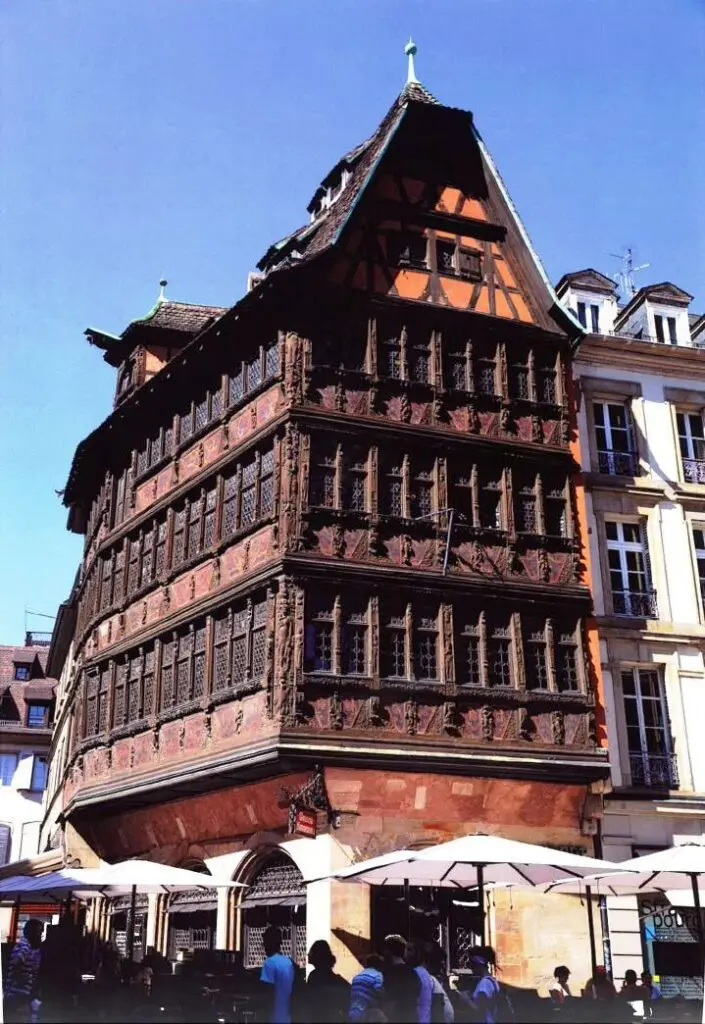
The Gothic foundations of this magnificent Strasbourg building date back to 1427, and it was in 1467 and 1589 that the three ornate timber-framed storeys that make it so distinctive were built. A true gem of half-timbered architecture, it also boasts numerous wood ornaments and carvings on its beams and posts, as well as on the frames of its 75 bottle-glass windows.
7. POMPIDOU CENTER, FRANCE

The roof of the Centre Pompidou, inaugurated in 2010, forms a hexagon 90 metres wide. The 8,000 m² roof structure is made entirely of glued-laminated timber. It is made up of hexagons, reminiscent of canework. The frame covers an area of 8,000 square meters, made entirely of glued-laminated timber. It is composed of hexagons that evoke a cane pattern, allowing spans of about 40 meters and making the roof self-supporting, resting on a few supports only, the “tulip columns.” The wood used for the frame (spruce) and tulip columns (larch) comes from Germany. The architecture is the work of Shigeru Ban and Jean de Gastines. The structural calculations were carried out by Dominique Calvi, who also carried out the calculations for the Philippe Séguin lecture theatre, an iconic building at ENSTIB.
8. MJØSTÅRNET TOWER, NORWAY
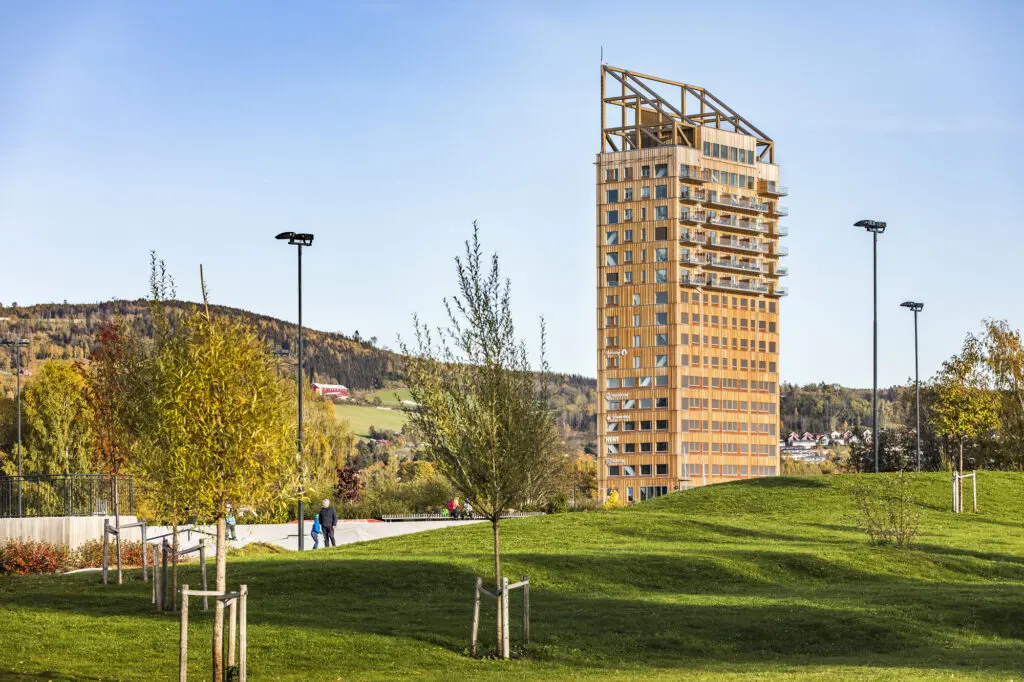
Officially inaugurated on 15 March 2019, Mjøstårnet, is now the world's tallest wooden building. Standing 18 stories high, the tower in Brumunddal, Norway, measures 85.4 meters. It houses a hotel, private residences, and office spaces. It symbolises environmentally friendly construction and proves that large buildings can be made using wood! The structure is similar to a conventional building, but its dimensions are very large. The structure and façade of the Mjøstårnet are made of wood.
9. XUANKONG TEMPLE, CHINA

The Xuankong Temple, also known as the Hanging Temple, is another extraordinary example of Chinese wooden architecture. Located near Datong in Shanxi Province, it is famous for being built on a cliffside, about 75 meters above the ground, appearing to hang in the air. Established over 1,500 years ago, it is a masterpiece of engineering and architecture. It rests on wooden pillars embedded in the cliff, with balconies and walkways connecting its various structures.
10. KINKAKU-JI TEMPLE (GOLDEN PAVILION), JAPAN

This pavilion is a magnificent example of traditional Japanese wooden architecture, with its upper floors entirely covered in gold leaf. This feature gives it a striking beauty, especially when reflected in the surrounding pond. Originally built as a villa for a shogun in the 14th century, it was converted into a Zen temple. The pavilion has survived various historical events, including a fire in 1950, after which it was faithfully rebuilt. Each of its three floors represents a different architectural style (Imperial Palace, samurai style, and Zen style), symbolising harmony between heaven, man, and earth.

And one last magnificent wooden building for a scare: the “Winchester Mystery House” in California. This residence is famous for its complex and labyrinthine architecture and the many legends surrounding it. Built by Sarah Winchester, heir to the Winchester fortune, the house was under continuous construction from 1884 until her death in 1922. It is known for its many architectural oddities, such as staircases leading to ceilings, doors opening onto walls, and windows overlooking other rooms. It is primarily constructed from sequoia and redwood, with meticulous attention to detail. However, since Mrs. Winchester did not like the exterior appearance of wood, it is covered with plaster.
Although this list does not claim to be exhaustive, it demonstrates through these iconic wooden buildings how wood is a timeless and unique material. From timber frames, simple cladding, frameworks, religious and agricultural buildings, multi-storey buildings, and even wooden skyscrapers, blocks of flats and industrial buildings, timber buildings have been with us since the Neolithic era. What’s more, all the indicators show that this is just the beginning of an all-wooden, and therefore more sustainable, world. As Julius Natterer said, “only the increased use of wood in construction can save the world’s forests,” so let’s go for it!
At ENSTAt ENSTIB, each year, with the Wood Challenges, we bring together architects, engineers, and skilled craftsmen to build a microarchitecture in wood. We also train high-level specialists within the specialisation engineering programme, who immediately assume responsibility for highly technical projects.
BIBLIOGRAPHY
- Wood Architecture in 80 Remarkable Buildings – Jean-Claude Bignon / Éditions le Moniteur
- Wood Architecture Now! – by Philip Jodidio*
- Timber Construction Manual – by Thomas Herzog, Julius Natterer, Roland Schweitzer


